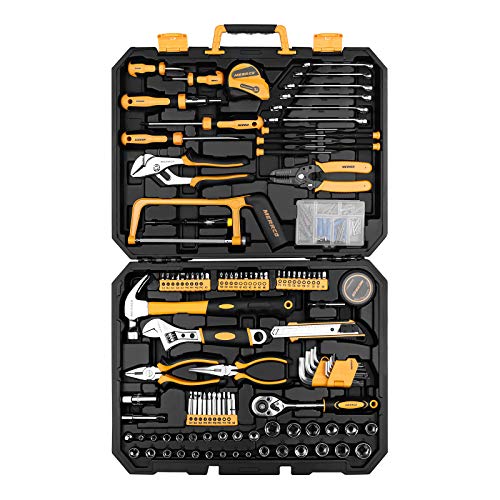I've don't live full time in my 6 X 12 converted cargo trailer, but there are times that I will spend a month or more high in the mountains without coming down for supplies. I have a reactive airway and have to leave the valleys when the wildfire smoke comes in. Most years I am usually out in the mountains about 4 or more months out of the year. I keep my trailer fully supplied at all times with enough for me for two months.
I can use an ice chest for some of that time, but even in a double insulated chest ice doesn't last forever, so my supplies are shelf stable. I have a small portion of my supplies that are commercial quick fix meals or things like pasta or rice sides, but most of my supplies are either home canned or dehydrated.
Doing my own canning and dehydrating is the best way I can control food quality and things like salt content. I use a couple of soft sided coolers for my canned food and some other totes for staples and dehydrated meals. The coolers are good for the canned food as they prevent freezing from cold nights here in Idaho when my trailer is still packed in the spring and fall. Packing glass jars has to be done carefully, but it is very doable. I travel on hundreds of miles of washboarded, washed out, rutted dirt roads, and believe me when I say that a cargo trailer does not travel gently. I've broken a spring on the axle, but not any jars.
I can a wide variety of things. Mostly I can in small amounts as usually I am on my own, until a weekend or two that my husband joins me, so lots of half pint jars. I have canned sausage, roast beef, hamburger, spaghetti sauce, sloppy joe mix, chicken, ham, pork, bbq pork, fish, smoked fish, bean soups, etc.
I buy some shelf stable milks, juices, pastas, rice, potato flakes, dried hashbrowns, dried potato slices, dried onion, garlic, Nido dry milk, dehydrated sour cream, and dehydrated bleu cheese. Also a few sauce and gravy mixes for when I am lazy.
I have a small cooler for marginal items that I trade jugs of water in. I usually camp at very high elevations, and it gets cold at night. If I remember I set a jug of water on top of my pickup and by morning "space radiation"

will have it ice cold. I put that in the cooler and take the warmer one out. Marginal items are things like butter, waxed hard cheeses, string cheese, Gogurt yogurts, salad fixings, carrots, celery, eggs etc. Eggs are generally from a local farmer and really don't need a fridge. I have also coated them with vaseline. I haven't had any go bad on me yet. The cooler doesn't stay at refrigerator temps, but it does even out some of the daytime highs. Even just a cooler with no jug will make a difference.
I have used the mini bell cheeses, but I do prefer cheddar, so I wax my own. I buy mild cheddar which I cut up into more meal sized chunks and wax with the red cheese wax. A well waxed cheese will not mold, but it will continue to age if it is not refrigerated. By the end of the year my waxed cheese is a very delicious sharp cheddar.
Dehydrated items that I bring: A lot of vegetables... corn, peas, beans, mixed vegis, broccoli, spinach, celery, mushrooms, cooked beans, cooked rice, cooked pasta. Dried fruits, jerky, fish jerky, dried ham, beef, chicken. Dried whole meals and soups. Most low fat regular meals can be dried and rehydrated. Some take longer to rehydrate than others, but with a good variety you can cook just about as good as you can at home.
I know that for some of you that full time, you don't have room for a dehydrator, but there are lots of sources on the Internet where you can buy smaller amounts of dehydrated and freeze dried food to try. Being pretty much pure ingredients they are way healthier than many store mixes or combined hikers meals.
This spring I was temped and bought an Engel 40 fridge/freezer. It gets here next week. I intend to use it as a freezer. I don't mind my canned meats in soups, pastas etc, but I am looking forward to a little steak and ice cream!

I hope that this is helpful to some of you.









































































